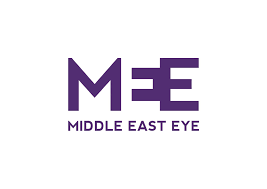Macron's risky gamble on Morocco to retain French influence in North Africa
 میدل ایست آی - 1404-06-23 14:49:43
میدل ایست آی - 1404-06-23 14:49:43
Macron's risky gamble on Morocco to retain French influence in North Africa

Emmanuel Macron is not a resentful man. While Rabat likely had his phone tapped using Israeli software Pegasus during his first term, the French president has decided to stake everything on Morocco in an attempt to preserve a minimum French presence in the Maghreb and the Sahel.
This is an extremely risky gamble, as Morocco enjoys neither the stature nor the geographical location to become an effective bridgehead and halt the dynamics of France's loss of influence in Africa.
The first paradox of this French gamble on Morocco is that Macron initially appeared rather wary of the North African kingdom and close to its rival neighbour Algeria.
Not only did Macron make Algiers a key stop during his first election campaign in 2017, where he used strong language to condemn French colonisation as a "crime against humanity", but he also initiated a credible process to end the disputes between the two countries and establish healthier relations on a new basis.
On the other hand, for many years under Macron, France's relations with Morocco remained strained, as a consequence of the actions of Moroccan intelligence services in France.
First, there were the revelations about the use of Israeli-made spyware Pegasus to spy on the French president, his prime minister and 14 of his ministers.
This accusation was followed by allegations that elected members of the European parliament had been bribed to lobby for Morocco.
After various twists and turns and unsuccessful initiatives with Algeria, Macron however completely changed course.
He started to shift his position in favour of Morocco in the summer of 2024 by backing the kingdom’s claim of sovereignty over Western Sahara and its autonomy plan. This caused a diplomatic crisis with Algeria - which supports the Polisario Front, a Sahrawi independence movement - that included the recall of ambassadors.
Macron then confirmed this shift during the summer, by endorsing a so-called hard line in relations with Algeria with a series of sanctions including the suspension of visa exemptions for Algerian diplomats and officials.
What does this about-face by the French president, who has decided to fully embrace the Moroccan card and demonstrate marked hostility towards Algeria, translate into concrete terms? What can France gain from this, and what does it stand to lose?
Much to lose
In Morocco, France is on conquered territory. French investors, politicians, tourists, businessmen, influencers, artists and intellectuals are pampered. The kingdom knows how to welcome guests.
Bilateral trade is at its highest level: $14.8bn in 2024, steadily increasing since the end of the Covid pandemic, with a balance close to equilibrium. In other words, France is making the most of its economic relations with Morocco.
Conversely, the crisis with Algeria has led to significant market losses, despite the enormous potential.
Morocco has neither the stature nor the geographical location to become an effective bridgehead and halt the dynamics of France's loss of influence in Africa
French cereals have virtually disappeared from Algeria, and France is becoming a second-class economic partner. The leaders of the Algerian-French Chamber of Commerce have deplored this development, which risks jeopardising France's five billion euros in exports to Algeria.
But it is on a geopolitical level that Macron’s choice risks weighing heavily.
France has already lost ground in Africa and the Sahel more specifically, with the declared hostility of the new rulers in Mali, Burkina Faso, Niger and Senegal. These countries have expressly requested that the former colonial power withdraw its troops. The last French units in the region left Senegal in July.
Added to this is a difficult relationship with the Maghreb countries. With Algeria, it's an open crisis, a real saga. With Tunisia, where President Kais Saied is attempting to establish a new diplomacy oriented towards Italy and the Gulf countries, France is encountering difficulties to maintain its position.
And with Libya, France is struggling to reestablish ties, as it supports General Khalifa Haftar, the leader of the eastern part of the divided country, against the UN-recognised government of Abdel Hamid Dbeibah in the west. Here again, Paris supports one side against the other, perpetuating divisions to the detriment of the stability needed for both better control of migration flows and the development of business opportunities.
Little to gain
In fact, France can only count on two intermediaries in North and West Africa: Morocco and Cote d'Ivoire. For Paris, using Morocco as a relay in Africa is not actually a choice, but a default solution, a last resort. There is no other, at least for the moment.
Hence France's total alignment with Morocco. The kingdom seized the opportunity, offering itself as an alternative solution and acting on all economic, diplomatic and geopolitical fronts.
It presents itself as a relay for French investment, thanks to its banks, which are said to have a strong presence in Africa, and to the success of its export-oriented industry, such as the automobile one.
However, clever communication strategies cannot obscure the reality. Morocco does not have the scale required to become a driving force for regional development. With a GDP of $165bn (five percent of France's) and a foreign debt approaching half of its GDP, it is difficult for the kingdom to claim a significant role.
Moreover, French companies have affirmed their intention to invest in Western Sahara although this territory, controlled almost entirely by Morocco since 1975 and claimed by the native Sahrawis, remains, in the eyes of the UN, "non-self-governing" and is placed under the control of the United Nations Mission for the Referendum in Western Sahara (Minurso).
As a diplomatic actor, Morocco alone has little influence in Africa.
Rabat sponsored the Skhirat Agreement in 2015 to resolve the Libyan crisis, but the agreement was stillborn, as it was immediately rejected by Libyan parties. It was therefore a pointless agreement, as Morocco has neither the trust of the main actors in the Libyan crisis nor the leverage to influence the crisis.
Carried away by aggressive communication, Morocco went further. It has recently proposed to offer the Sahel countries access to the Atlantic. These landlocked countries, eager to escape their isolation, have always aspired to free access to the sea.
For Paris, using Morocco as a relay in Africa is not actually a choice, but a default solution, a last resort
Yet, a simple glance at a map reveals the absurdity of this proposal: Morocco has no direct border with the landlocked countries of the Sahel. Furthermore, they have cheaper, less risky and much shorter access to the sea, via several routes leading to the Gulf of Guinea or West African ports.
Similar examples can be cited to demonstrate the impasse towards which Macron's decision to fully embrace the Moroccan card in an attempt to restore France’s presence in Africa is leading.
And with this comes the inevitable question: why such an irrational choice?
The highly reputable newspaper Le Monde has offered an explanation. It is said to be a "form of chagrin". According to the French weekly, Macron's recent decisions are due to Algerian President Abdelmadjid Tebboune's refusal to speak by telephone with the French head of state.
It is hard to believe that affairs of state are managed at this level.
The views expressed in this article belong to the author and do not necessarily reflect the editorial policy of Middle East Eye.







